#OEDIPUS ACTOR AT THE END??
Explore tagged Tumblr posts
Text
Back from seeing the Oedipus Rex play, lives were changed (mine), habits were ruined (will never be able to read greek tragedies again now I need to see all of them live)
#THE CHOIR???#OEDIPUS ACTOR AT THE END??#there was also a woman dressed in black who had no lines and only danced and when oedipus made ghimslef blind she wordlessly covered him#with black cloth (she symbolizes tragedy/death/misery/etc)#oedipus rex#oedipus#sophocles#Antigone was also there and had little short lines#my girl!!#I love her so much
2 notes
·
View notes
Text

FATHER & SON: James Earl Jones with his Father Robert Earl Jones on Stage in the 1962 Production "Moon on a Rainbow Shawl."
Robert Earl Jones (February 3, 1910 – September 7, 2006), sometimes credited as Earl Jones, was an American actor and professional boxer. One of the first prominent Black film stars, Jones was a living link with the Harlem Renaissance of the 1920s and 1930s, having worked with Langston Hughes early in his career.
Jones was best known for his leading roles in films such as Lying Lips (1939) and later in his career for supporting roles in films such as The Sting (1973), Trading Places (1983), The Cotton Club (1984), and Witness (1985).
Jones was born in northwestern Mississippi; the specific location is unclear as some sources indicate Senatobia, while others suggest nearby Coldwater. He left school at an early age to work as a sharecropper to help his family. He later became a prizefighter. Under the name "Battling Bill Stovall", he was a sparring partner of Joe Louis.
Jones became interested in theater after he moved to Chicago, as one of the thousands leaving the South in the Great Migration. He moved on to New York by the 1930s. He worked with young people in the Works Progress Administration, the largest New Deal agency, through which he met Langston Hughes, a young poet and playwright. Hughes cast him in his 1938 play, Don't You Want to Be Free?.
Jones also entered the film business, appearing in more than twenty films. His film career started with the leading role of a detective in the 1939 race film Lying Lips, written and directed by Oscar Micheaux, and Jones made his next screen appearance in Micheaux's The Notorious Elinor Lee (1940). Jones acted mostly in crime movies and dramas after that, with such highlights as Wild River (1960) and One Potato, Two Potato (1964). In the Oscar-winning 1973 film The Sting, he played Luther Coleman, an aging grifter whose con is requited with murder leading to the eponymous "sting". In the later 20th century, Jones appeared in several other noted films: Trading Places (1983) and Witness (1985).
Toward the end of his life, Jones was noted for his stage portrayal of Creon in The Gospel at Colonus (1988), a black musical version of the Oedipus legend. He also appeared in episodes of the long-running TV shows Lou Grant and Kojak. One of his last stage roles was in a 1991 Broadway production of Mule Bone by Hughes and Zora Neale Hurston, another important writer of the Harlem Renaissance. His last film was Rain Without Thunder (1993).
Although blacklisted by the House Un-American Activities Committee in the 1950s due to involvement with leftist groups, Jones was ultimately honored with a lifetime achievement award by the U.S. National Black Theatre Festival.
Jones was married three times. As a young man, he married Ruth Connolly (died 1986) in 1929; they had a son, James Earl Jones. Jones and Connolly separated before James was born in 1931, and the couple divorced in 1933. Jones did not come to know his son until the mid-1950s. He adopted a second son, Matthew Earl Jones. Jones died on September 7, 2006, in Englewood, New Jersey, from natural causes at age 96.
THEATRE
1945 The Hasty Heart (Blossom) Hudson Theatre, Broadway
1945 Strange Fruit (Henry) McIntosh NY theater production
1948 Volpone (Commendatori) City Center
1948 Set My People Free (Ned Bennett) Hudson Theatre, Broadway
1949 Caesar and Cleopatra (Nubian Slave) National Theatre, Broadway
1952 Fancy Meeting You Again (Second Nubian) Royale Theatre, Broadway
1956 Mister Johnson (Moma) Martin Beck Theater, Broadway
1962 Infidel Caesar (Soldier) Music Box Theater, Broadway
1962 The Moon Besieged (Shields Green) Lyceum Theatre, Broadway
1962 Moon on a Rainbow Shawl (Charlie Adams) East 11th Street Theatre, New York
1968 More Stately Mansions (Cato) Broadhurst Theatre, Broadway
1975 All God's Chillun Got Wings (Street Person) Circle in the Square Theatre, Broadway
1975 Death of a Salesman (Charley)
1977 Unexpected Guests (Man) Little Theatre, Broadway
1988 The Gospel at Colonus (Creon) Lunt-Fontanne Theatre, Broadway
1991 Mule Bone (Willie Lewis) Ethel Barrymore Theatre, Broadway
FILMS
1939 Lying Lips (Detective Wenzer )
1940 The Notorious Elinor Lee (Benny Blue)
1959 Odds Against Tomorrow (Club Employee uncredited)
1960 Wild River (Sam Johnson uncredited)
1960 The Secret of the Purple Reef (Tobias)
1964 Terror in the City (Farmer)
1964 One Potato, Two Potato (William Richards)
1968 Hang 'Em High
1971 Mississippi Summer (Performer)
1973 The Sting (Luther Coleman)
1974 Cockfighter (Buford)
1977 Proof of the Man (Wilshire Hayward )
1982 Cold River (The Trapper)
1983 Trading Places (Attendant)
1983 Sleepaway Camp (Ben)
1984 The Cotton Club (Stage Door Joe)
1984 Billions for Boris (Grandaddy)
1985 Witness (Custodian)
1988 Starlight: A Musical Movie (Joe)
1990 Maniac Cop 2 (Harry)
1993 Rain Without Thunder (Old Lawyer)
TELEVISION
1964 The Defenders (Joe Dean) Episode: The Brother Killers
1976 Kojak (Judge) Episode: Where to Go if you Have Nowhere to Go?
1977 The Displaced Person (Astor) Television movie
1978 Lou Grant (Earl Humphrey) Episode: Renewal
1979 Jennifer's Journey (Reuven )Television movie
1980 Oye Ollie (Performer) Television series
1981 The Sophisticated Gents (Big Ralph Joplin) 3 episodes
1982 One Life to Live
1985 Great Performances (Creon) Episode: The Gospel at Colonus
1990 True Blue (Performer) Episode: Blue Monday
#james earl jones#black tumblr#black literature#black community#black excellence#blackexcellence365#actor#robert earl jones#stage actor
324 notes
·
View notes
Text
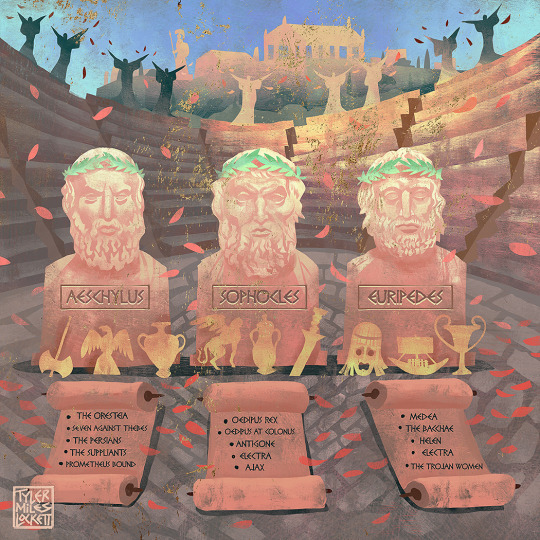
In 5th century Athens, a festival in honor of Dionysus was held called the City Dionysia where competitions in music, dance, poetry, and outdoor theatre performances took place. Here playwrights perfected three types of plays; comedies, tragedies, and satyr plays. A masked actor(s) would communicate with a group known as the Chorus; who summarized plot points and backstory to the audience. These elegant and incredible plays, not only expand our views on mythic characters and tales, but they reveal insight into the ancient cultural beliefs of Athenian Greeks. There were many playwrights, but the three most famous tragedians are as follows…
Aeschylus (525-455 B.C.) (Eh-skuh-lus) known as “the father of tragedy,” descended from a line of Eleusinian priests, and fought as a hoplite soldier against the Persians. Aristotle credits Aeschylus with first creating conflict between two characters in a play (before this the characters would only converse with the chorus members). His Oresteia trilogy, is the only surviving complete trilogy we have. Out of his 80- 90 plays, 7 are extant (surviving).
Sophocles (496 – 406 B.C.) (saa-fuh-kleez) came from a wealthy family, was highly educated, and well known and respected amongst statesmen. He is credited by Aristotle for the innovation of adding a third actor onstage to propel the plot, thereby reducing the importance of the chorus, as well as adding skenographia, or scene paintings. Out of the 30 competitions he entered, he won 24. Sophocles most famous plays are his Theban plays; Oedipus Rex, Oedipus at Colonus, and Antigone. Out of his 120 plays, 7 are extant.
Euripides (480- 406 B.C.) (yer-i-puh-deez) was a pioneer for portraying mythic heroes as more flawed, as well as developing internal character conflict to new heights with female characters like Medea and Hecuba. He commonly used the plot device Deus Ex Machina; where gods arrive to resolve the conflict at the end. It is said Euripedes socialized with Sophist philosophers, and owned a large library. He only won 4 competitions. Out of his 92 plays, 19 are extant.
Thanks for looking! to see more of my mythic art, please click the LINKTREE Link in my bio.
Thank you for retagging my artworks all you lovely tumblr folks! xoxo
#pagan#hellenism#greek mythology#tagamemnon#mythology tag#percyjackson#classicscommunity#dark academia#greek#greekmyths#classical literature#percy jackon and the olympians#pjo#homer#iliad#classics#artmerch#mythologyart#art#artists on tumblr#artists on etsy#odyssey#literature#hesiod#ancientworld#ancienthistory#ancient civilizations#ancientgreece
568 notes
·
View notes
Text
changed my mind about oedipus at colonus again. i now think it was originally performed by three actors with the role of theseus split between actors, BUT i don't think that either part-splitting or a strict maximum of three actors was normal before the very end of the century or can be applied to any other extant tragedy
10 notes
·
View notes
Note
Having read your and @thefutureiswhat's season 5 finale theory I'm curious to know your thoughts on this shot:

Is it possible that one of these potential endings could involve both Dot and Roy making it out of the farm during the events of the raid and he, with nothing else left to lose at that point, attempts to take her again? She's wearing different clothes so I'm betting that she's home, or at least on her way there. Plus her seemingly shocked expression and the lighting suggests that something's happened, possibly something burning...?
What do you think? Could this be the ending scenario that "Dot prepares biscuits for"? (Maybe even the her poisoning him theory?)
Sending you both the ask because you each have really compelling ideas and speculations.
it's funny, because I was just thinking about this scene and how we probably aren't going to see it, because Dot is clearly wearing different clothes.
Your suggestion of how we might still see it is excellent, but the one thing working against it is time.
The run time for 5.10 is 49 minutes, which seems impossibly short. That's why the idea of 3 alternate endings being strung together as one continuous narrative seems more plausible than showing each ending separately (assuming there actually are three). It also fits with the way the story has been told so far, with strange inconsistencies between scenes and episodes.
I think there was a tremendous amount of footage left on the cutting room floor this season, maybe too much. There are also a lot of tantalizing clues that deserve to be paid off, including Roy saying he'd let Dot go if she begged to stay and meant it. We also have things like the flamethrower; the tank and Wink's foreshadowing of a tank battle; the windmill blades that look like matches; the Trojan horse; all the stag imagery and a guy named Buck Holt, which means "forest deer"; Witt Farr and his 100-pound backpack; Oedipus and the right of way, etc.
From what some actors have indicated, the finale is crazy. So maybe they can pull off including this scene, which always felt to me like Bluebeard's wife discovering the bodies of all the previous wives. But we've basically covered that ground.
Roy did say the options for killing the tick were suffocation or fire. "The Tiger" also mentions suffocation. And Roy is covering Dot's mouth.
I think there is going to be a huge potential for fanfic about this season, because of all the stuff we didn't get to see, some of which was teased in promos but never happened. There are a lot of gaps to be filled. I hope we do get to see this somehow.
Meanwhile, that new spoiler regarding Roy has me thinking of the biscuits in another context.
8 notes
·
View notes
Text
i just finished chapter 9 and-- (spoilers below)

so many things to process my brain is working overtime aaaa
i can't wait for chapter 10 :') when will the loose ends tie up? NXX feels very separated atm with our MC feeling left out and confused (and me as well! brain hurty! i like making bullet points so here's a list of what my thoughts are while playing ch 9)
are they leaving her out on purpose because of the doxxing??
could the team's "discord" be caused by what luke said at the start, something about not receiving info from his agency because of his closeness to the team? so they have to act like they're not close w/ each other hmm
who tf is oedipus and why is he targeting luke? could it be jerome?
gerard where are u
:') cold artem is scary and I Do Not Want Go Against Him At Court + the artem we all love calling mc the night before then acting all cold and aloof the next day artem best actor awardee!
what's with the fortune teller? kinda reaching but do u think her talismans could have the nxx drug on them lol
luke is Not Okay
marius is Not Okay (sidenote: arrogant marius to jiejie :< they're bullying me :<< pouty marius was so funny)
vyn is Having Problems At Home
chapter 10 when :')
#tears of themis#tears of themis spoilers#tot spoilers#i want to have a big brain moment but unfortunately my brain has stopped working#dont mind me i need to release this somehow#i have to go back and reread the chapter because it's been wiped from my head apparently#i am not good with words orz#akii.txt
15 notes
·
View notes
Text
Happy Birthday 🎂 🥳 🎉 🎈 🎁 🎊 To The Most Talented & Well Received Black Actor, Director, Comedian, & Writer since 1987
He was born in Chicago, the second of four children to Shirley (née Jenkins) and Ed Townsend. His mother ended up raising him and his three siblings as a single parent. Growing up on the city's west side, He attended Austin High School; graduating in 1975. He became interested in acting as a teenager. During a reading of Sophocles' Oedipus Rex in high school, He captured the attention of Chicago’s X Bag Theatre, The Experimental Black Actors Guild. He later auditioned for parts at Chicago's Experimental Black Actors' Guild and performed in local plays studying at the famed Second City comedy workshop for improvisation in 1974. He had a brief uncredited role in the 1975 movie Cooley High, but says the film "changed his life" for what he perceived as its true-to-life portrayal of people like him.
In 1987, He wrote, directed and produced Hollywood Shuffle, a satire based on the hardships and obstacles that black actors undergo in the film industry. The success of his first project helped him establish himself in the industry. Another of his films was The Five Heartbeats based on 1960s R&B male groups and the tribulations of the music industry. He created and produced two television variety shows also created and starred in the WB Network's sitcom The Parent 'Hood which originally ran from January 1995 to July 1999. In 2018, He also directed 2 episodes for the B.E.T. Series American Soul which began airing in 2019. The show is about Don Cornelius and Soul Train. He was programming director at the Black Family Channel, but the network folded in 2007.
Since His Days In Acting, Director, Comedy, & Writing.
His Career Is Very Well Known For Major Roles In Black Cienma Of Movies
From The Mighty Quinn Starring Denzel Washington, A Movie he starred & also directed in
The Five Heartbeats Based On A True Story, Which he also Starred & Directed
& Most Importantly
The Iconic Superhero Role Of A Lifetime that made him become the 1st Black / African-American To Portray A Superhero Of Color On The Big Screen
Since 1993
THE METEOR MAN 🦸🏿♂️☄🟢
He has always been a idol to me since Childhood with this particular film 🎥
Please it is my Great Honor to have you all wish this Legendary Entertainer A Very Happy But Belated Birthday 🎂 That's My Bad.
The 1 & The Only
MR. ROBERT TOWNSEND AKA THE METEOR MAN 🦸🏿♂️☄🟢
HAPPY BELATED BIRTHDAY 🎂 🥳 🎉 🎈 🎁 🎊 MR. TOWNSEND

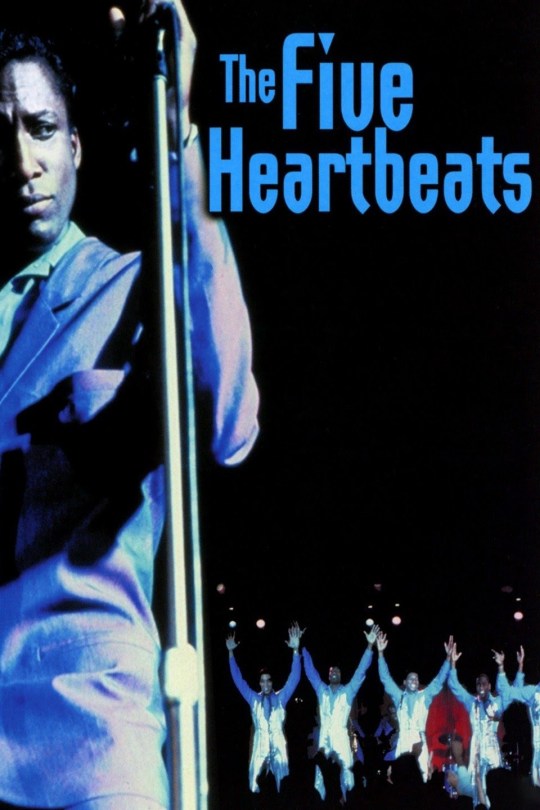

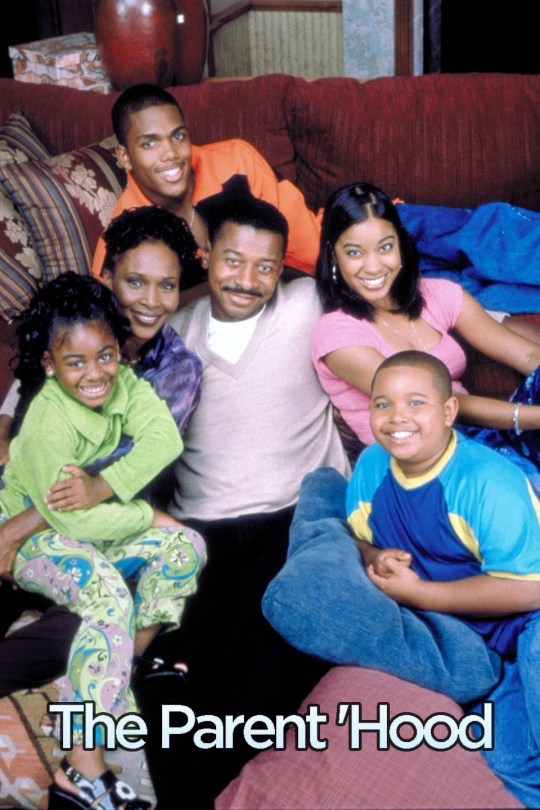
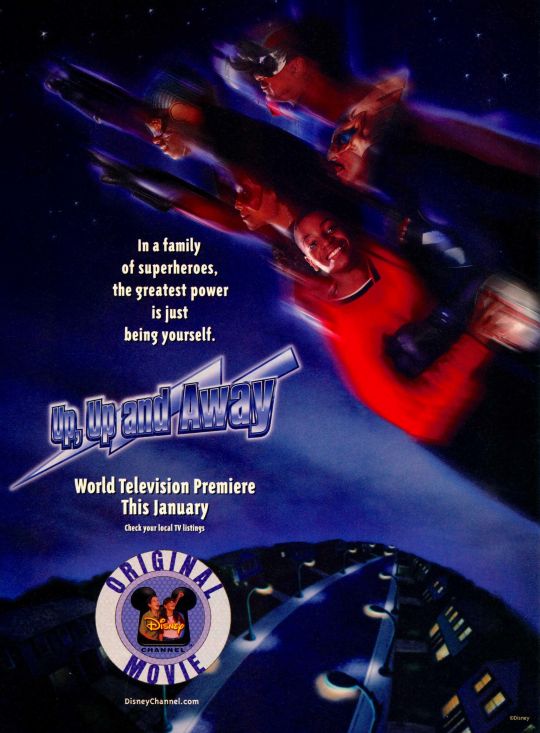
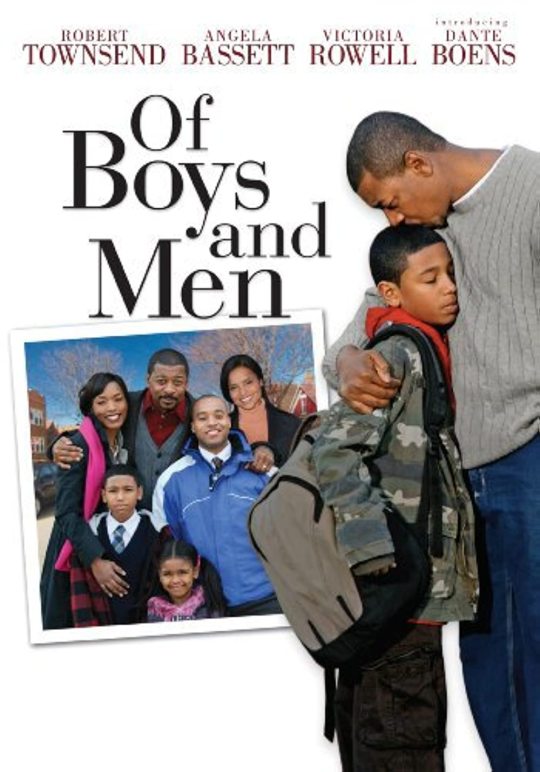

12 notes
·
View notes
Note
I don't watch many movies because it's hard for me to focus. But I think I can say “The Man from Earth”, “The Seventh Seal” and “Oedipus Rex” are among my favorite movies. For some reason, I suddenly thought of the woman from the movie "Skins" whose mouth and asshole were displaced 🥲
I was curious and watched the "Antichrist" movie you mentioned and it was very good. The concept of "id" in the Freudian model and the details of Nietzsche were used well. I wasn't expecting to like the movie that much lol. I liked that the woman in the movie still continues to have sex despite seeing her child go to the window, thus referring to hedonism. The scene with the deer, the fox and the bird was very artistic, wasn't it? I would like to read your comments about the movie if you still remember the scenes
I'm thinking of checking out the other movie you mentioned. Your taste in music and movies is great
The movie just reminds me of primal human nature nothing else. I guess the movie portrays sin somehow and nature's as Satan's church, human nature as Satan's church. A man and a woman in a place called Eden. The symbolism used throughout the movie. You can check more info about the ending of the movie online when a bunch of faceless women are walking up the hill, i guess it may be related to witch trials. I think both actors are excellent and i love Charlotte's voice, it's so suiting, i wanna fall asleep with her whispering in my hear dark creepy lullabies 😌 (lullabies to paralyze). I like the movie scene when she talks about the accorns and makes a metaphor regarding death. Also reminds of the scene in The Last Samurai when the samurai leader says "and i remember, like these blossoms, we are all dying" anyway...
Also, i watched the movie again last weekend and noticed they dedicate the movie to Andrei Tarkovsky which may also have movies you should watch at least once in your lifetime. You can say Tarkovsky dedicated is life to cinema, literally. Did you know that he died of cancer because of the movie Stalker? They recorded the movie on the edges of a waterbed in a industrial area and the contamination of the elements around fucked him and the actors involved.
Thank you 🖤
3 notes
·
View notes
Photo
fuck okay so @hellsfireclub asked me to continue the thoughts I dumped in the tags of my reblog like a month two months ago re: ancient Greek theatrical conventions.
Tbh I do not have the academic chops to do this justice but I tried. I have about three half composed essays proposals about this topic floating around in my head that I’ve shoved into this. I've included links and added photos. Buckle up folks, this is under the cut for a reason.
I apologize to OP for hijacking this gorgeous collection of gifs, but they're what inspired this conversation so I'm not going to make my own post.
I'll explain my tags cause they were a mess:
There are the obvious mythological connections of Helen and Cassandra, and the fall of Troy. However, this particular gifset reminds me of the Greek theatrical practice of role doubling, and I propose that the cast is organized like a Greek Play: three principle actors (Monáe, Craig, and Norton) and a chorus (the rest of the Disruptors).
The other characters (Philip,Claire’s family, Duke’s Mom) are so minor that they can be dismissed for the purpose of this discussion, but I’ll revisit.
Of our principal actors, Monáe is the one that plays multiple characters, and I propose that she plays three: Helen-Cassandra, Helen, and Flashback-Cassandra.
Another practice of ancient Greek theatre is masks (not the health kind, but masks disguising the full face). The movie utilizes the health kind as a narrative tool to tell us about the characters, then supplies the characters with an excuse to not wear them. The theatrical masks would be inappropriate for this movie, and so the plot device of the identical twins is offered up in order to resolve the issue of physical disguise.
Super brief gif ids for the OG post:
One: Helen-Cassandra right before she tears apart Mile's 'disruptor' explanation.
Two: flashback-Cassandra in her office. Wearing black and white.
Three: Helen-Cassandra stepping out of the taxi on the dock.
Four: Helen talking to Blanc about clues, wearing Cassandra's clothes.
Five: flashback-Cassandra in the courtroom. Wearing grey.
Six: Helen talking to Blanc about Cassandra's notebooks the night before they leave for the island. She is wearing clothes that are likely Cassandra's, and her hair has been changed, but she has not started embodying Cassandra yet.
Seven: Helen in one of Cassandra's dresses in a moment alone on the island.
Eight: Helen drinking whiskey in front of everyone just before she starts breaking glass. At this point everyone knows that she is Helen and that Cassandra is dead.
[end ids]
(This is not the place, but someone PLEASE talk about the palate and arc of Monáe's wardrobe).
Okay SO, some ancient Greek info:
The Trojan war (and the lives of Helen and Cassandra), however much may be truth or myth, is placed 13-12 BCE.
The Greek Plays we know today (Oedipus Rex, Medea, Lysistrata, etc) are largely from the 5th century BCE. Greece held competitions for playwrights and we know a lot about how, who, and what, even though most of the plays themselves did not survive.
Some theatrical conventions of your average 5th century Greek Play:
Three Actor Rule - Actors were professionals, and they were a limited resource. They were paid by the state and several plays happened at once. Some plays may have even been staged with just two principal actors.
Role Doubling- if you wanted more than three speaking characters in your cast, you needed your principal actors to take on more than one role. Obviously who-plays-who is dependent on which characters are on stage at the same time. Having the same actor in multiple roles can and often does add a meta element.
Chorus- a group of actors that sing/dance/speak as one character, serving as a participatory audience and guide for the actual audience into the action of the play. They are situational based on the story (ie, in Medea the chorus is named “women of Corinth” because that’s where the play is set and it’s important to the story that Medea have a group of women to interact with). There can be a chorus 'leader' who takes most of the spoken lines, physically leads the other members, etc.
Masks - in ancient Greece, theatrical masks covered the full face, with holes for the eyes, nostrils, and mouth. Chorus and actors all wore them. Constructed and fitted correctly, these masks actually assisted in ensuring the whole audience could hear the actors. They exaggerated expressions so audience members could better see, disguised actors playing multiple roles, expressed either comedic or more serious moods, and actually helped distribute sound throughout the amphitheater.
(i appologize, idk how to make the pictures smaller)

[id: a theatrical mask on a black background. The mask is made of hardened linen and is painted to match a caucasian skin tone. The lips are parted and the linen is cut out between them, the eyes are lined in dark brown and the whites are white, the irises are cut out. The hair is made of pale grey/beige tightly curled yarn. End id]

[id: A picture of seven people wearing tunics and Greek-style theatrical masks like the one pictured previously. They are standing on grass, with a neutral backdrop. One actor stands apart, wearing red. The group is the chorus, wearing a range of soft blue-purple. A range of skin tones is represented and each mask is painted to match the skin tone of the actor wearing it, obvious based on the actors’ bare arms. End id] Photo credit: Randolph College, from the 2021 production “Heracles & Deianeira.”
Conventions in modern practice:
Just because these practices are hallmarks of ancient Greek theatre does not mean they are confined to productions of the Greek plays.
Limited casting (though not, perhaps, a strict three actor limit) and role doubling are seen across all kinds of media, and there are plenty of examples of theatrical masks across time and culture.
That I cannot think of other examples of a chorus dynamic outside of Glass Onion almost certainly speaks more to my ignorance/lack of imagination than an actual lack of the practice.
A few specific examples of limited casting and subsequent role doubling, in theatre and other media:
Theatre: Shakespeare's plays are often doubled (The American Shakespeare Center’s Spring 2023 production of As You Like It casts seven actors across 19 parts). Tom Stoppard's Arcadia takes place across two timelines and casts actors to play one character in the present day and a different character in the past. Lin Manuel Miranda's Hamilton has a number of roles that only appear in one act or the other, and are paired off (Lafayette-Jefferson, Peggy-Maria, etc).
Audio dramas: Wolf 359 casts Zach Valenti as Eiffel and Hilbert. The Penumbra Podcast, an anthology, casts a number of actors in multiple stories and occasionally multiple times within the same story. In Kalila Stormfire’s Economical Magick Services, Lisette Alvarez plays the titular Kalia as well as Shadow, a separated part of Kalila with differing goals.
Tabletop role playing games like Dungeons and Dragons demand that the game master voice multiple characters, an aspect which has carried into podcast, video, and staged versions of these games such as The Adventure Zone. She Kills Monsters by Qui Nguyen is a scripted play that uses Dungeons and Dragons as a vehicle for the story and so each actor has a primary role and a secondary ‘in-game’ role.
On screen, we have Monáe in Glass Onion, and Lindsay Lohan in The Parent Trap, another twin-based narrative. The Leverage (2008) episodes The Van Gogh Job, and The DB Cooper Job, and Leverage Redemption (2021) episode The Jackal Job all cast the main actors as their usual roles and also as characters from a historical narrative unfolded within each episode. In Doctor Who, Peter Capaldi played a roman five years before he was cast as the Doctor, a doubling that the writers built a story around.
To throw in a few examples of masks outside of Greek plays: In Noh Theatre, the Japanese drama form dating back to the 1300s, masks represent the supernatural, among other things. Webber's Phantom of the Opera, features both the masked phantom and a masquerade ball. Stagings of Shakespeare's Much Ado About Nothing often rely on masks to allow Beatrice to unknowingly converse with Benedick, and sometimes to disguise Margaret as Hero. A very science-fiction, highly technological mask is used in Marvel’s properties, like when Natasha Romanoff disguises herself in Captain America and the Winter Soldier.
Now that we've reviewed the conventions and thought about some other examples, let's apply the conventions to Glass Onion.
Three actors: Monáe, Craig, and Norton
Doubling: Monáe plays multiple roles. I break them down as:
Helen-as-Cassandra
Helen
Flashback-Cassandra (I label her this was as the 'actual' Cassandra dies before the timeline of the film and many of the flashbacks are speculative)
Chorus: the rest of the Distruptors, including Whiskey and Peg. They are Mile's sycophants until the very end when, finally, they save their own skin together by turning on Miles as a whole.
Masks: In this film, full-face theatrical masks would have been inappropriate for the staging and storytelling.
However, it is set in a universe that experiences the (a?) viral pandemic, and so masks covering the nose and mouth for contamination reasons are a relevant symbol and tool.
The film gives the characters (including the chorus) individual personalities regarding mask wearing and then gives them all an excuse to not wear them.
This has been hashed out by folks more eloquent than I: individual characters have different reactions to the masks and the spray. They have different levels of risk aversion and different responses to the social mores of mask wearing.
I don’t have a lot more to say about masks in the film, but at the end I’ll throw out some ideas for staging Glass Onion as a play and using masks for such a production.
To me, the most interesting “Greek” aspect of the film is the role doubling, because all the layers of Monáe's performance culminate here:
Helen-Cassandra:
My life was taken away from me by someone, by everyone in this room.
My life! Do you even know what that means?
Helen is the living person in this scene, but if this were staged with masks, she would be wearing Helen-Cassandra mask. She is wearing Cassandra's clothes, talking with Cassandra's affect, and the Chorus/Disruptors still believe her to be Cassandra. (And so does the audience, as this is before the reveal.)
This means that Cassandra is able to speak in this moment. Because Monáe is both Cassandra and Helen, because Helen is acting as Cassandra, Cassandra's voice is heard post-mortem, condemning those who betrayed her. Helen gets her moment of catharsis, to express her sister's life as her own, and she gives Cassandra one last chance to speak her truth.
It is worth noting, too, that we see here another nod to the mythological Cassandra. This speech is just shortly before Miles shoots Helen. Helen, who the chorus still believes is Cassandra, tells them that she is dead, and they don't believe her.
There is something in here that someone more articulate could probably pin down, about Cassandra making true prophecies but never being believed, and Helen-Cassandra speaking a truth about her life being taken that isn't understood/believed but has already happened and proceeds to play out falsely.
[Aside, I do wonder… presumably Miles knows Helen exists. But… is Miles aware of his own stupidity?
Miles left before confirming that he killed Andy. When Helen first arrives at the island in the guise of Cassandra, does Miles wonder if maybe Andy didn't die? Is there a moment that he wonders if he failed to kill her? After all, Miles isn't very good at doing things right.]
Miles shoots Helen-Cassandra, killing her but failing to kill Helen. Cassandra dies for good this time, but this 'death' serves as an unmasking. The next time the Disruptors see her, Blanc is unfolding the mystery and introduces her as Helen.
Honestly, the more I think about it, the more the Glass Onion plot aligns itself with the depths of the Greek dramas and myths. A sister dies. A living sister takes her place to uncover her murderer. My life! She tells the chorus. She quite literally burns down the life of the man who killed her sister.
In just a few (incredibly overly simplified) examples:
Antigone defies a king to honor her brother, at the expense of her life. The king loses his son and wife for refusing to bend.
Medea slaughters her children, a king, and the king’s daughter in order to hurt her unfaithful husband. Her chorus is sympathetic with her plight and - though they have misgivings and disagree with her choices - are complicit, failing to stop her or warn her victims.
The Orestian plays detail a series of murders within a family, starting with the “sacrifice” of a daughter and ending with her brother driven mad for killing their mother.
Also, to note, there are plenty of ways that casting in Greek plays can give voice to the dead, so to speak. An actor might play both a king, and the messenger that delivers news of that king’s death. Elektra lives, but in Libation Bearers, she disappears from the stage after confirming plans to kill her mother. Elektra’s actor must then, if roles are doubled, return as Klytaimestra, Elektra’s mother.
These echos- the same actor giving voice to such entangled characters, give us, as the audience, so much to delve into.
All that said, I have a few thoughts about staging Glass Onion as if it were a Greek play.
Again, please note this is not my area of expertise. I am not giving any consideration for how you would physically construct a set and what it would look like. I am not thinking about how you would stage a three-way call or a combination Zoom call/communal video game. Please don’t @ me on this.
Three actors and the roles they fill (I’ll use A, B, and C in place of actor names):
A: Helen, Helen-Cassandra, Flashback-Cassandra, Duke’s mom
B: Blanc, musician at Birdie’s party, news anchor, delivery person, lawyer
C: Miles, Philip, “Efficient Man” (Tony Hawke’s character), Boat Captain, Claire’s husband
Now, we know that Glass Onion is not a Greek Play and that Philip is played by romcom actor Hugh Grant and that the “random” person with such topical knowledge at Birdie’s is Yo-Yo Ma. There are metatextual reasons to cast them with these actors. However. That’s not the assignment at this specific moment.
Chorus: This is definitely not a Greek Play thing, but I would propose that Blanc’s friends in the Amongus Zoom call be played by the Disruptors in different masks. Blanc’s friends are not the same as the Disruptors, but I think this could highlight that fact.
Claire’s kids can be played by actual kids (as with productions of Medea). Crowds/background extras can be done away with.
The only character I have a real problem casting is Derol (this is apparently the real spelling. I hate it too.) He appears alongside each of our main actors and he is not part of the chorus. He’s also, specifically, a thorn in the movie because of the pandemic he represents. I’m not sure how to handle Derol exactly; the very nature of his role is incompatible with doubling.
Masks:
Each of Actor B and Actor C’s characters would have different masks.
Actor A would have one mask for Duke’s mom, and one mask for the other three roles with three different wigs. This would actually be consistent with the movie: Helen, when her hair is done like Andi’s, parts it on the ‘wrong’ side. Functionally, this is totally doable. One company uses magnets to make the wigs detachable from their masks. I’m sure velcro and snaps would also be viable options.
Uhhhhh yeah, thanks for coming to my very disorganized ted talk?

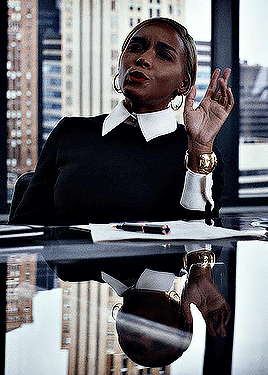

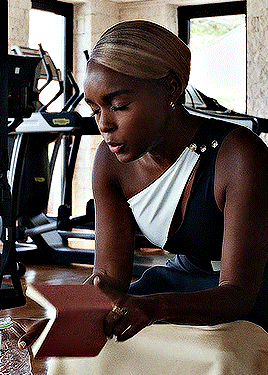




Janelle Monáe as Helen Brand/Cassandra Brand in GLASS ONION: A KNIVES OUT MYSTERY (2022) dir. Rian Johnson
#Glass Onion#under the cut#wow um. sorry this is a nightmare to read?#gonna think about how to send this to my mentor and ask 'is this anything' without giving her my url#Greek Plays#Greek Myths#Theatre
18K notes
·
View notes
Text
Tragedy and Catharsis in Media
Tragedy and catharsis are integral aspects of storytelling, particularly when it comes to the theme of star-crossed lovers. Through renowned works such as "La La Land," "Eternal Sunshine of the Spotless Mind," the TV show "Normal People," let's explore the significance of tragedy and catharsis. But first let’s find out what tragedy and catharsis mean.
What Does Tragedy Mean?
Tragedy, in a literary and dramatic sense, refers to a genre characterized by serious and somber themes, often involving the downfall or suffering of the protagonist. These narratives typically explore profound human emotions such as sorrow, loss, and despair, and they frequently end in catastrophe or death. Tragedy often reflects on the complexities of the human condition, exploring universal themes such as fate, morality, and the consequences of one's actions.
Ancient Greek playwrights such as Aeschylus, Sophocles, and Euripides are renowned for their contributions to the development of tragic drama. Their works, such as "Oedipus Rex" and "Medea," continue to be studied and performed today, influencing the broader literary tradition of tragedy across cultures and time periods.
What Does Catharsis Mean?
Catharsis refers to the process of releasing, purging, or cleansing emotions, particularly through experiencing or witnessing intense or overwhelming feelings. In psychological terms, catharsis involves the emotional release or purification that occurs when individuals confront and express their deep-seated emotions, often leading to a sense of relief or resolution.
To define catharsis succinctly: Catharsis is the emotional release or purification that occurs when individuals confront and express their deep-seated emotions, often leading to a sense of relief or resolution.
Exploring Tragic Love Stories
Now that we have a clear definition of tragedy and catharsis, let’s view some examples in media.
La La Land
In the film "La La Land," the captivating love story of Mia and Sebastian takes center stage. Both aspiring artists with their own passions and dreams, they find themselves entangled in a romance that dances between joy and heartbreak. As their relationship unfolds, the stark reality of their divergent ambitions becomes apparent. Mia strives to become a successful actor, while Sebastian dreams of opening his own jazz club.
Their inability to reconcile their individual aspirations with the demands of their relationship ultimately leads to a poignant and bittersweet climax. The sacrifices they must make become increasingly evident, forcing them to make choices that pull them apart rather than bring them closer together. This exploration of the complexities of love and the inevitable trade-offs involved evokes a powerful sense of catharsis within viewers.
Through Mia and Sebastian's journey, the film delves deep into the universal theme of pursuing personal dreams and the sacrifices that come with it. It invites us to reflect on the delicate balance between love and ambition, highlighting the painful choices individuals sometimes face in order to pursue their passions. The emotional impact of the story resonates with audiences, as it captures the poignancy of letting go of something beautiful in order to pursue personal fulfillment.
Eternal Sunshine of the Spotless Mind
In the thought-provoking film "Eternal Sunshine of the Spotless Mind," the audience is immersed in the tumultuous love story of Joel and Clementine. After a painful breakup, both Joel and Clementine undergo a groundbreaking memory-erasing procedure in an attempt to erase all traces of their relationship from their minds. As the process unfolds, Joel, in his subconscious state, begins to relive the memories of their love, rekindling the emotional connection he had with Clementine.
Through this journey of rediscovery, the film delves into the profound complexities of human connections and the indelible impact of past experiences on our lives. As Joel revisits the memories he shared with Clementine, he realizes that erasing those memories cannot completely erase the emotions and connections he felt. The narrative explores the notion that our past experiences shape who we are, and even if we try to erase them, they leave an indelible imprint on our psyche.
As viewers accompany Joel and Clementine on their journey, they are invited to reflect on their own experiences of love, loss, and the profound impact of memories. The emotional release experienced through catharsis allows the audience to confront their own emotions and gain a deeper understanding of the intricate tapestry of human connections. It reminds us that our experiences, both positive and negative, contribute to our growth and shape our future relationships.
Normal People
In the compelling TV show "Normal People," adapted from Sally Rooney's novel, the narrative delves into the intricacies of the relationship between Marianne and Connell. Their connection is profound and intense, fueled by a deep love for each other. However, the circumstances surrounding them seem determined to keep them apart.
Throughout the series, Marianne and Connell's relationship is marred by external pressures, societal expectations, and personal insecurities. They navigate a tumultuous journey, characterized by moments of deep intimacy and heartbreaking distance. Despite their mutual desire to be together, they tragically agree to part ways, recognizing that their separation is a necessary sacrifice for their individual growth.
Through catharsis, viewers are prompted to reflect on the intricacies and challenges of relationships. The emotional release offered by the narrative allows them to confront the pain and heartache associated with choices that prioritize personal growth over immediate gratification. It forces us to examine the complexities of love, timing, and the ways in which external forces shape our lives and relationships.
The Essential Role of Catharsis:
Catharsis plays a vital role in our lives by allowing us to process and release emotions that may otherwise accumulate and impact our mental well-being. It serves as a coping mechanism for difficult experiences or emotions, promoting emotional healing and personal growth. Engaging with tragic narratives provides a cathartic experience through which we can experience intense emotions vicariously, gaining clarity, perspective, and a sense of relief.
Ultimately, tragedy and catharsis intertwine, illuminating the profound complexities of the human experience. As we navigate these narratives, we are reminded of the enduring power of storytelling to evoke deep emotions and offer transformative insights. Through the shared journey of tragic love stories, we discover solace, growth, and a deeper connection to our own hearts and the world around us.
0 notes
Text

Robert Townsend (born February 6, 1957) is an actor, director, comedian, and writer. He is best known for directing the films Hollywood Shuffle, Eddie Murphy Raw, The Meteor Man, The Five Heartbeats, and various other films and stand-up specials. He is known for his eponymous self-titled character, Robert Peterson the starring role in The Parent ‘Hood, a series that he created and of which directed select episodes. He is known for his role as Donald “Duck” Matthews in his film The Five Heartbeats. He wrote, directed, and produced Making The Five Heartbeats, a documentary film about the production process and behind-the-scenes insight into creating the film. He is known for his production company Townsend Entertainment which has produced films Playin’ for Love, In the Hive, and more. He gained national exposure through his stand-up comedy routines and appearances on The Tonight Show Starring Johnny Carson.
He became interested in acting as a teenager. During a reading of Sophocles’ Oedipus Rex in high school, He captured the attention of Chicago’s X Bag Theatre, The Experimental Black Actors Guild. He auditioned for parts at Chicago’s Experimental Black Actors’ Guild and performed in local plays studying at the famed Second City comedy workshop for improvisation. He had a brief uncredited role in the movie Cooley High.
He was born in Chicago, the second of four children to Shirley (Jenkins) and Ed Townsend. His mother ended up raising him and his three siblings as a single parent. He enrolled at Illinois State University, studied for a year, and moved to New York to study at the Negro Ensemble Company.
He was married to Cheri Jones (1990-2001) together they had two daughters, both entertainers, and a son. #africanhistory365 #africanexcellence
0 notes
Note
What do you think about Hawley’s comments about the Jack Skellington-Gator link? I found it interesting because Gator is stereotypically terrible so far. Do you think that’s just because that’s all he knows? Having said that ‘out loud’, that really does sound like Jack! But the softness is a surprise.
In retrospect we have seen hints of something deeper in Gator. Not many, which could be because we’ve rarely seen him on his own. There’s always someone to put up a front for. When he’s in his bedroom you see him looking defeated before he amps himself up. You can also see how Roy’s dismissal of him hurts him in the barn with Ole Munch, and when Roy calls him out on being a two-time loser. Which, ouch. But there aren’t many other examples, unless I’m missing something.
So if there’s more to be revealed, I wish Hawley hadn’t spoiled it. Kind of undermines the actor’s good, subtle work, and it would have been nice to watch it evolve without the creator over explaining things. But that’s on me for reading the article! In fairness, I thought it had spoilers for the just aired episode, not for things yet to come.
Some spoilers follow, but nothing that isn't already publicly available on the internet from reviews and official promos.
I had to go and read the article first, so that's done. If you read Gator's official character description, he's compared to Oedipus, who inadvertently murdered his father and married his mother, because he didn't have the necessary information to avoid that, which he desperately wanted to do. So I've been expecting some Oedipus stuff to come up.
Noah Hawley says that "with a different father, he would have been a kind soul.” Well, maybe Roy isn't his biological father, but Gator doesn't know that.
Recall Munch telling Roy that he sent him to do a job without the necessary information, so how could he expect the job to be done. In that scene, Gator calls Munch The Riddler. Oedipus answered the riddle of the sphinx, which is how he became a big hero and ended up marrying the recently widowed Queen of Thebes, who was his biological mother. What he didn't know was that the guy he had killed at a crossroads was not only the King of Thebes, but also his biological father.
Because the circumstances of Oedipus's birth were concealed from him, he stepped right into the prophecy he was trying to avoid.
So I think Gator has been denied some crucial information. I already did expect some kind of redemption arc for his character. After all, this season is about debt, and I think Lorraine's debt collection business is called Redemption Services. (We don't even know at this point what her business is.)
When Oedipus realizes what he's done, he blinds himself. He has already been figuratively blind the whole time. We've seen Gator blindfolded in a preview, and he wears his sunglasses on the back of his head, where they're useless. We also have characters with eye patches and eye injuries, perhaps signifying that they don't see the whole picture.
Munch seems to be the truth-exposer, the sphinx who will bring Gator up to speed and make him face reality.
And Noah Hawley is absolutely terrible at interviews. Most of the time, he ends up making the story sound boring, when it definitely isn't. It's like he's two different people, one who writes the show and one who gives interviews. After months of keeping the nature of Roy's connection to Dot a secret on Reddit with spoiler tags, Noah Hawley went and spilled the beans that Dot was Roy's wife before the show even started!
At this point, I'm actively trying to avoid his interviews.
12 notes
·
View notes
Photo
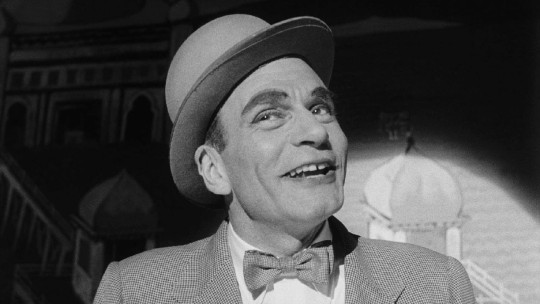
Laurence Olivier in The Entertainer (Tony Richardson, 1960)
Cast: Laurence Olivier, Brenda de Banzie, Roger Livesey, Joan Plowright, Alan Bates, Daniel Massey, Albert Finney, Shirley Anne Field, Thora Hird. Screenplay: John Osborne, Nigel Kneale, based on a play by Osborne. Cinematography: Oswald Morris. Art direction: Ralph W. Brinton. Film editing: Alan Orbiston. Music: John Addison.
Sleazy old Archie Rice was one of Laurence Olivier's theatrical triumphs, proof that a classical actor, renowned for his Hamlet and Oedipus and Coriolanus, could take on the "kitchen-sink realism" of an Angry Young Man, John Osborne, and add glory to his already celebrated name. But the film version is an example of the difficulties that have to be overcome when a play is translated into a movie. For even though Tony Richardson, who directed the 1957 Royal Court Theatre version, also directed the film, and the play's author did the screenplay as well (in collaboration with Nigel Kneale), the movie lacks energy. The play alternates between what's going on in Archie Rice's house and his performances on stage, whereas the film "opens up" to show the English seaside resort town where Archie's music-hall is located, and some of the events that are merely narrated in the play, such as Archie's affair with a young woman whose family he tries to persuade to back him in a new show, are dramatized in the movie. Olivier's creation of the "dead behind the eyes" Archie is superb, and his music-hall turns in the film manage to suggest that even though he was a hack as a performer Archie could have held an audience's attention, though it's clear that seeing Olivier on an actual stage would have had a stronger impact from sheer immediacy. The cast is uniformly fine: Brenda de Banzie as Archie's second wife, Roger Livesey as his father (Livesey was in fact only a year older than Olivier), Joan Plowright as his daughter, and making their film debuts, Alan Bates and Albert Finney as his sons. But in the end it's a collection of impressive performances in service of a not very involving story of a self-destructive man and his dysfunctional family.
1 note
·
View note
Text
Content Warning
By Jesse Eisenberg
November 7, 2022
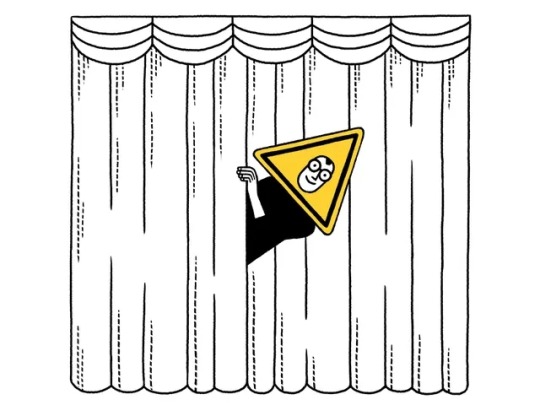
This production contains strobe lights, loud noises, and haze.
this production contains a rain effect, which impacts only the sides of the audience. Luckily, this production has not sold a single ticket on the sides of the auditorium, as this production can barely sell out the middle section.
this production contains strong language. But not in the literary sense. There are no memorable lines, witty jokes, or pithy observations whereby characters muse in a way that allows the playwright to make a larger point about the human experience.
this production contains a scene in which the actors will be smoking. It may appear that one of the actors, the young man playing Cousin Jude, has never actually smoked a cigarette in his life, even though his character explicitly says, “I’ve been smokin’ my whole life.” You’d think the actor might have done the bare minimum of preparation for the role—it’s his first job, he’s straight out of Fordham—but he apparently thought he could wing it. This is just par for the course in this production.
this production uses dry ice to indicate that a scene is either a happy dream, a scary dream, a flashback, a passage of time, or that it takes place in Europe.
this production contains two characters who appear nude. That’s actually a bit misleading. It’s the same character, but at different ages. The first time we see the character nude, he is played by the lithe young man who plays the cop on that TV show. Presumably, most of you are here to see this actor in this nude scene. If you are sitting in the orchestra, you will get the fullest view. If you are sitting in the balcony, it’s not a complete washout, but I recommend moving down to the orchestra. There will be many available seats. In the second act, the same character is nude, but he is now played by Peter Jablownski. Peter is a member of our repertory company, and this is his forty-third year with us. If you make it to the second act, you’re going to want to head back up to those balcony seats.
this production contains confusing double casting.
this production contains an uncalled-for musical number.
this production contains unconvincing stage combat, a poor depiction of what it’s like to have diabetes, and a didactic speech about Lenin.
this production contains a vast misunderstanding of addiction.
this production contains a shocking ending. Although, to be clear, it’s not a good shock. It’s not the kind of shock where you’re invested in a character or a story and then, when things take an unexpected turn, you’re left with a greater understanding because you realize that the characters had no other choice. This is not Miss Julie walking offstage with a razor or Willy Loman crashing his car or Oedipus gouging out his own eyes (although doing that yourself might cross your mind during this production). It’s the kind of shock that makes you think, Have I been watching a different play for the past two hours? Wasn’t the grandmother supposed to be dead? How did they all wind up in Las Vegas, and why does the doctor keep mentioning bowler hats? It’s the kind of shock that tells you that the director got the job only because his dad runs the theatre company, and apparently nothing matters in this life except having a powerful father who runs a theatre company or being the third lead on a cop drama. It’s the kind of shock that indicates that the playwright’s mother was right and she should just go back to law school, and that having a career in the arts is both unstable and incredibly selfish.
this production will run four and a half hours, with one five-minute intermission. ♦
SOURCE
3 notes
·
View notes
Text
#waughahaugahhh#ok going to try to be semi coherent now...#cordelia is not a performer; despite her aspirations she was always a terrible actor#and she rejected that dream in 'belonging' because hollywood men treated her like an object#but jasmine turns her into a site of performance; she literally object-ifies her#ats s4 is interested in theatre (insofar as ats s4 is at all coherent as a narrative)#how many times do the characters reference othello and oedipus rex?#'there should be a play' angel says. buddy you're in it. and cordelia's the unwilling star#both angel (sans soul) and skip as jasmine's agent posit a theory of reality as tragic theatre#in which people are merely character puppets lacking true free will and doomed from the start to play out their roles#(see also: 'i don't dance. i echo.')#in cordelia's case her free will is literally and wholly subsumed by jasmine's possession and performance of her#like the prima ballerina from witw she is the favorite the most beloved of the one who pulls the strings#it is a terrible fate to be the favorite#and with the end of jasmine's performance of cordelia her story (as plotted by jasmine) draws to a close. the curtains fall.#still. she is not quite done. it is gunn not angel or skip who is right about free will in the end#cordelia gets to give one last encore. hers not anyone else's. and then she walks out of the theatre for good#she transcends the narrative and in doing so she gives angel & co. the tools to transcend their narratives too#cordelia was never a good actor. but she was always very good at being cordelia.#and that's something no one not even jasmine could ever take away from her. @moistvonlipwig
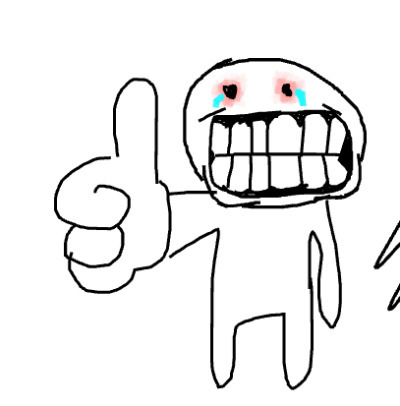

The tragedy of Cordelia Chase: A comic puppet show in all acts
#we are all doing so normal this fine evening#just wanted to say thank you for these tags reading them actually made me feel sick (complimentary)#buffyverse#angel the series
116 notes
·
View notes
Note
Wondering what you think the volturi does on a day to day basis. They can’t be punishing and eating people every day right? What do they do in their free time?
Hold up laser pens trying to get Marcus to chase them. He never does.
Alright, I’ll be serious.
For the record, I’m not sure that there is as much free time as one’d think. The Volturi are the one organization in the world keeping vampires from destroying the world, and there’s only 30-something of them. And there are only two of Jane and Alec, only one Demetri.
I think they’re extremely busy, to the point where I can believe that Jane and Carlisle never met. It’s a bit strange, yes, but this girl and her brother are running on foot to every corner of the world to keep the wheel turning. It’s no surprise she can’t slum it at home.
But there are only so many vampires, and only so many non-vampire threats.
I touched upon it here, in part because I felt bad for anon. They asked for fluffy headcanons, I replied, “eh, they’re miserable bastards" so I added my theatre headcanon at the end there. Then like this guy I added that last paragraph, now I’m feeling mildly self-conscious about the whole post. Should have kept it at the miserable bastards.
In short, even Volturi need to unwind sometime. Sports aren’t really an option, as they’d have to leave Volterra to do it without humans noticing. I’m sure there’s smaller games being played on excursions when there’s nothing else to do, like a game of tennis on the way to or fro a mission, but when it comes to what Aro would put together to entertain the coven... I think Hellenistic theatre.
Athens had a very particular brand of theatre. Basically people would write plays, produce and perform them, and then the best play was crowned winner. Athenian actors were all men, and they all wore masks. There would be a chorus. In the early days of this thespian tradition there was only one actor, but as the years went by this was expanded to two, then three actors.
In other words you have a lot of room for creativity, all the room in the world, and something to interest everybody. Script writing, costume design, acting, and the sky is the limit for what you can do. A maximum of three actors allows for small teams, so you can have many competitors. Plus, this formula means that if people are called away on missions halfway through the planning, they can return to the “game” months or years later, no problem.
Mostly, I think Aro is just the type to make his guard do this. He claims it’s about preserving his cultural heritage, but really it’s about the flashy costumes, hammy acting, and sheer showmanship of it all.
For the record I firmly believe Carlisle was recruited to play Helen in the genderbent Illiad.
(I hope I don’t come across as pretentious or show off-y when I do this- but here are a few recs for Ancient Greek plays. They’re a very particular style, but compelling and absolutely worth the read. Notice how there are never more than three people on stage at once:
Sophocles:
Oedipus Rex. Yes, that story. Guy kills his dad, marries his mom, finds out.
Oedipus at Colonus. Direct sequel to Oedipus Rex. Oedipus is blind, disgraced, dethroned, and miserable. He seeks absolution for what happened in the last play.
Antigone. Sequel to Oedipus at Colonus. Antigone is Oedipus and Iocasta’s daughter, and her life is terrible.
Euripides, a great tragedy writer:
Medea. As in, Medea who was married to Jason. You’ve probably heard of her. I strongly recommend Euripides’ version, the ending is a gutpunch.
Bacchae. A very interesting depiction of Dionysus where he pretty much goes “oh you thought I was the funny drunk guy. Well, I just hypnotized your daughter into killing her child.”
There’s also the comedian Aristophanes, whose works I unfortunately never read but if I’ve ignited a flame in anybody, go google him.)
#long post#volturi#aro#carlisle cullen#ancient greek theatre#twilight#twilight meta#twilight renaissance
145 notes
·
View notes